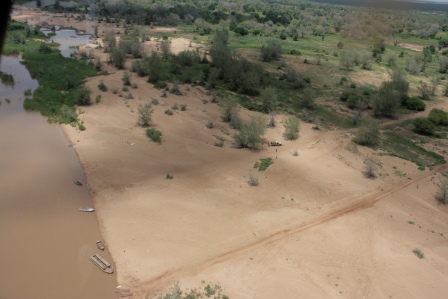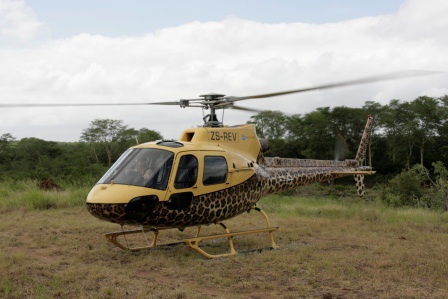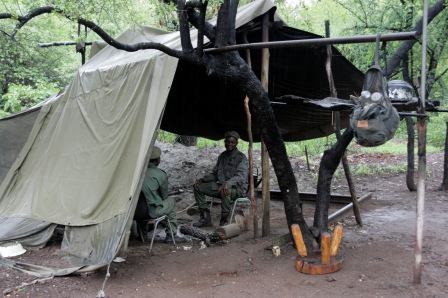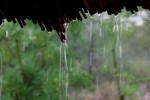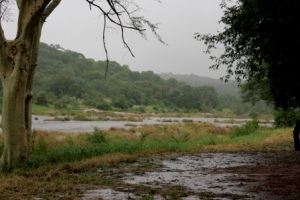27 January 2012
I wake up, shocked to find it’s already 04.25. I was supposed to leave at 03.00! Maputo is still a long drive away and the meeting starts at nine!
The morning light is rising as I pass Massingir and head for Chokwe on badly worn tar interspersed with gravel stretches where repairs had been made after the floods of 2000. Beyond Chokwe, still heading east to Macia on a tar road riddled with craters, there’s angry whipped-up cloud ahead and a spirited wind blowing from the side. It’s the outermost edge of the great spinning wheel of deadly cyclone Funso that’s heading down the Mozambique channel after lashing Quelimane further north.
At Macia I join the coastal road that is Mozambique’s main artery and I step on the pedal until I enter the capital two hours later. Here I get bogged down in traffic that leaves me twenty minutes late when I finally pull in under the porte cochére of the Polana Hotel. Fortunately for me the key delegates from SA are also late after one of the private planes bringing them developed a technical glitch. The gathered suits and TV crew wait patiently until the meeting finally starts at eleven. It’s an important one. 
Present are Dr Mabunda, CEO of SA’s National Parks, various generals and high ranking officials of the Mozambican government, and also the investors in a number of private game reserves that border the Kruger National Park on its Mozambican flank. On the table is a desperate bid to prevent these conservation areas from being isolated after the shock news that Kruger plans to erect an impenetrable border fence as a drastic measure to curb the poaching of its rhinos by criminals operating out of Mozambique.
There is tension in the air: Nobody knows what message Dr Mabunda is bringing today. Will a Berlin wall go up, thereby killing the viability of the conservation effort that has been made on the Mozambican side, or is SA still open to the idea of a connected buffer zone, such as the one on Kruger’s western boundary where Sabie Sands and other reserves have proved the success of private ecotourism ventures in providing security by bringing benefits to hungry local communities? Perhaps more importantly; will Kruger’s expanding animal populations get the chance to move into the vacant bush next door where their kin once roamed, or will they be locked in for immediate protection?
The investors state their case: Much has been done on their side already; electric fencing, anti-poaching squads, investments in community projects, etc, etc. All the plans have been put into action for a recognized long term solution to poaching, but things are dragging because of official bureaucracy. They need help; from Kruger in the form of operational backup in the war on poaching, and from the Mozambican government by allowing it, as well as by speeding up land issues and getting tight on legislation, prosecution and corruption. Their plan is a good one, they say, the two governments just need to roll up their sleeves and get involved.
Next it’s Dr Mabunda’s turn. The SA government has a gun to it’s head, he tells the meeting. People from all over the world are furious about the rhino slaughter. They’re demanding action. A new border fence – instead of the further removal of the old one – has been mooted as a solution and a decision must be taken soon. But first prize, he concedes, would rather be an efficient cross-border buffer zone that can expand the area available for Kruger’s animals and solve the human conflict in a way that is more beneficial in all aspects, as has been thoroughly proved. However, for this to be an option the Mozambican side will have to commit itself speedily to a memorandum of understanding that will lead to actively addressing the current problems, he says.
For the private conservationists who have been fighting both poachers and bureaucracy his message is a welcome one. The Mozambican government delegation on the other hand, find themselves caught in the harsh beam of the searchlight. A Berlin wall will be a symbol of their lack of capacity, their ambassador to SA admits. Something better must be done.
When I leave the meeting it is with the hope that today may prove to have been a turning point in the rhino war. An estimated 60% plus of the slaughter in Kruger (that totalled 244 last year) springs from Mozambique through the area under discussion. Will the Mozambican government, despite the challenges it still faces on many fronts after a disastrous civil war, now rise to its duty?


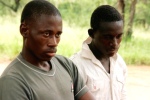
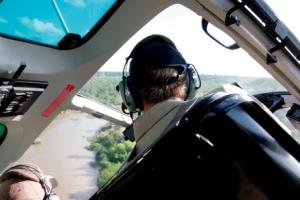







 We fly low, following the two wheelruts that snake through the trees below us, all eyes alert for a vehicle or a messenger on foot. On all sides the virgin bush of the almost flat plains of Mozambique stretches away to a hazy horizon. This is big, empty country; it looks almost hostile from the air.
We fly low, following the two wheelruts that snake through the trees below us, all eyes alert for a vehicle or a messenger on foot. On all sides the virgin bush of the almost flat plains of Mozambique stretches away to a hazy horizon. This is big, empty country; it looks almost hostile from the air.